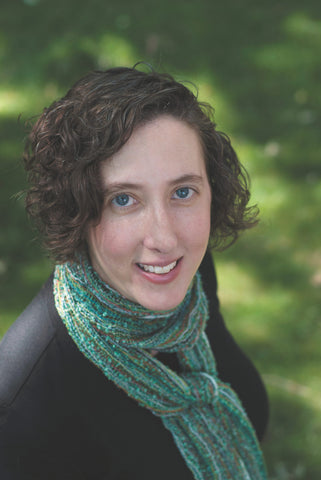Pride on Every Page: Author Guest Post by Lisa Jenn Bigelow, author of HAZEL'S THEORY OF EVOLUTION
The Right Time: Being Ready to Be an Ally
by Lisa Jenn Bigelow
Metaphors for adolescence practically write themselves. Case in point: school hallways. If you’re lucky, you’ve got friends to walk with. Unlucky, and bullies attack. And then there are a whole lot of spectators, kids and adults alike, afraid or unwilling to get involved.
For kids subject to systemic oppression, the hallways aren’t just nerve-wracking. They’re dangerous. And because this is a metaphor, it applies to the rest of life, too: sports, religious institutions, the internet, kids’ own homes. Everywhere are allies, bullies, and spectators.


I grew up in the 80s and 90s in Kalamazoo, Michigan. A college town, it can feel like a cosmopolitan island in a sea of Christian conservatism. Still, despite finding support among my family, community organizations, and books as I questioned my sexual orientation, I couldn’t help absorbing messages of hatred and fear as well.
Slurs slung at school, sometimes by my own friends. Teachers and pastors fired for being gay. Newspaper articles and letters to the editor debating gay rights. Were gay people evil? Making bad life choices? Criminal? Insane?
I share my story not because I had it bad. On the contrary, I had it about as good as you could get in that time and place. Yet decades later, I still struggle with the fallout of internalized queerphobia.
Because there is no filter fine enough to keep these messages from kids’ ears, no amount of love and support that can completely drown out the voice of the mob. And the consequences can last a lifetime.
That’s why it’s vital for parents, educators, and other mentors to be allies. We may not prevent all the damage done by the mob, but we can mitigate it. We may not change the hearts and minds of bullies, but we can provide an alternative voice. We can buffer against hate. We can offer affirmation. We can help kids believe that the world wants and needs them. That they have a future.
Sometimes a library patron will tell me, “I’m not ready to explain same-gender marriage/transgender identity/other queer topic to my children.” Or I’ll read a social media post by an educator who says, “My community is sheltered. My students are too young for xyz.” Or I’ll hear about an author’s school visit getting canceled due to their book’s queer content and the administration’s fear that parents will complain.
Setting aside that every community almost certainly includes queer folk and every classroom queer children, these notions of “readiness” are deeply problematic.
While adults wait for the “right time” to introduce issues of gender identity and sexual orientation in an affirming and fact-based manner, the mob never stops chanting its messages of hatred and fear. While we wait, we’re not allies. We’re spectators, standing back silently as the bullies do their worst.
It can seem challenging. I get that.
As a librarian, I never balked at buying queer books for our collection or creating queer bibliographies. These tasks always felt safe, behind the scenes. But for years I felt too insecure—in myself, in my job—to create Pride Month displays or suggest queer books to patrons.
In the back of my mind, I heard the mob ranting about the “gay agenda.” I was afraid of judgment, of complaints. I was letting my internalized queerphobia rule me.
Even though I was ashamed of my cowardice, it was hard to change. That first Pride display felt a bit like diving off the high board. I still get nervous suggesting queer books to patrons.


But it’s like most things in life: it gets easier with practice. And that momentary anxiety is a small price to pay for being a better ally. For knowing I’ve done that much more to shine a light on queer books and queer lives, reminding kids the world has room for everyone.
As a parent, too, I’ve felt “unready.”
When I became a parent—technically, a foster caregiver—it was to a ten-year-old I’d never met before. I didn’t know what attitudes he might already have. How would he react to my queer relationship history, my queer friends? It was months before I told him I was an author, just so I wouldn’t have to tell him about my queer books!
But this is what I’ve learned since. Queer media need not be scary catalysts for uncomfortable conversations. On the contrary, they make these conversations way easier.
Among the TV shows my child and I love to watch together are Steven Universe, She-Ra and the Princesses of Power, Dragon Prince, and Andi Mack. All of them present queer characters and relationships in normalizing, affirming ways appropriate for children.
Instead of me scrounging for explanations and examples to answer my child’s questions, which is high-pressure for me and confusing for him, we have conversations about beloved characters. And although my child is exposed to queerphobic bullying at school and online, these voices of love are, I hope, louder.
Books, of course, can do the same. In recent years, publishing has stepped up its game, recognizing the importance of offering a broader spectrum of queer literature, including more picture books and middle grade books.
For the adult who doesn’t feel “ready,” these books offer language to discuss gender identity and sexual orientation in developmentally appropriate ways. Because there is always a developmentally appropriate way to discuss these topics.
I believe this to my core. And yet, I’ve experienced doubts about my own books.
When my middle grade novel Drum Roll, Please was published, I was excited, of course. But I was also skeptical, and scared. Who would actually want to read it? How would my patrons react? While I’d always believed the story deserved to be published, deep down I’d never really expected anyone but queer people to appreciate or respect it.
Because when I was growing up, queer representation was virtually nil. More often than not, queer characters were victims, not heroes. The message was that queer people and their stories didn’t matter, not to the wider world.
Even at 40 years old, I heard the voice of the mob.


Fortunately, my doubts and fears have subsided. The positive reviews have helped. The blog posts and children’s choice award lists. The gap on the library shelf when all the copies are checked out. The emails from kids telling me Drum Roll is their favorite book or they want to record the characters’ songs. The response, when I suggest one of my own books to a young patron, of “Oh, I already read that. It was really good!”
I’m a prideful person. I hate to admit that it’s taken this degree of external validation to finally, mostly, drown out the bullies. But there it is.
And if that’s true for me as a relatively well-adjusted, successful, privileged adult, think about that kid walking alone through a crowded hallway, absorbing every word and blow, praying for an ally.
We need to step up to be those allies. Kids need us to have honest, open conversations with them at every age. They need us to speak out against prejudice and oppression. Queer kids need our support and advocacy. Non-queer kids need us to lead them into allyship by example.
And while I’ve focused here on queerphobia because it’s part of my experience, the same need for allyship applies to any kind of bullying and systemic oppression.
This is way bigger than our personal discomfort or fear. Kids’ lives are on the line. It doesn’t matter whether we’re “ready” or not. Our kids are. The right time is now. The right time is always.
About the Author


Lisa Jenn Bigelow is the critically acclaimed author of the middle grade novels Hazel's Theory of Evolution (winner of the Lambda Literary Award) and Drum Roll, Please and the young adult novel Starting from Here, which was named a Rainbow List Top Ten book by the American Library Association. She grew up in Kalamazoo and still considers the Mitten State home. These days, when Lisa isn’t writing, she serves as a youth librarian in the Chicago suburbs. Visit her online at www.lisajennbigelow.com.
About Hazel's Theory of Evolution

Winner of the Lambda Literary Award!
Hazel knows a lot about the world. That’s because when she’s not hanging with her best friend, taking care of her dog, or helping care for the goats on her family's farm, she loves reading through dusty encyclopedias.
But even Hazel doesn’t have answers for the questions awaiting her as she enters eighth grade. What if no one at her new school gets her, and she doesn't make any friends? What’s going to happen to one of her moms, who’s pregnant again after having two miscarriages? Why does everything have to change when life was already perfectly fine?
As Hazel struggles to cope, she’ll come to realize that sometimes you have to look within yourself—instead of the pages of a book—to find the answer to life’s most important questions.
About Drum Roll, Please


Find the confidence to rock out to your own beat in this big-hearted middle grade novel. One of Time Out's “LGBTQ+ books for kids to read during Pride Month”, this is perfect for fans of Raina Telgemeier's Drama and Tim Federle's Better Nate Than Ever!
Melly only joined the school band because her best friend, Olivia, begged her to. But to her surprise, quiet Melly loves playing the drums. It’s the only time she doesn’t feel like a mouse. Now she and Olivia are about to spend the next two weeks at Camp Rockaway, jamming under the stars in the Michigan woods.
But this summer brings a lot of big changes for Melly: her parents split up, her best friend ditches her, and Melly finds herself unexpectedly falling for another girl at camp. To top it all off, Melly’s not sure she has what it takes to be a real rock n’ roll drummer. Will she be able to make music from all the noise in her heart?



